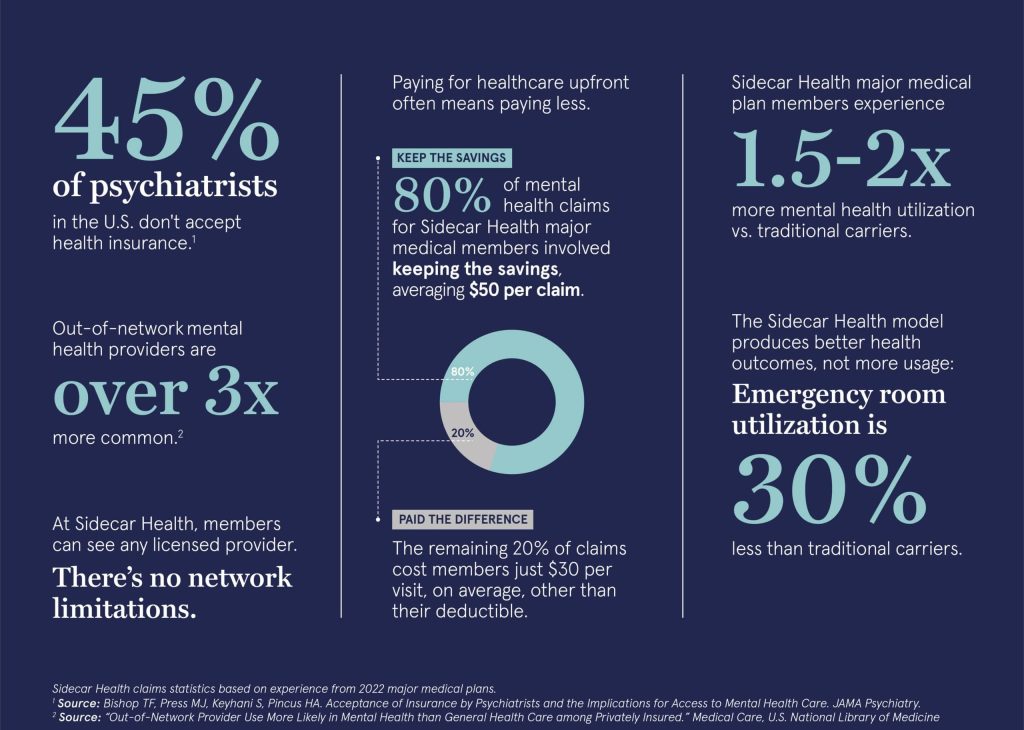When it comes to taking care of our mental well-being, understanding what health insurance covers for mental health care can feel overwhelming. Whether you’re exploring therapy options, wondering about medication costs, or curious about inpatient treatment, knowing what’s included in your plan can make a big difference. In this article, we’ll break down the essentials of mental health coverage, so you can navigate your benefits with confidence and get the care you deserve. Let’s dive in and simplify the world of mental health insurance together!
Table of Contents
- Understanding the Basics of Mental Health Coverage in Your Health Insurance
- Common Mental Health Services Included in Most Plans
- Navigating Limits and Exclusions to Maximize Your Benefits
- Tips for Choosing a Plan That Supports Your Mental Wellness Journey
- To Conclude
Understanding the Basics of Mental Health Coverage in Your Health Insurance
When it comes to mental health coverage, insurance plans often include a variety of services designed to support your emotional and psychological well-being. Most policies cover professional consultations such as visits to psychiatrists, psychologists, and licensed therapists. Additionally, many plans provide benefits for outpatient counseling, which can be crucial for ongoing support. It’s essential to remember that coverage can vary significantly depending on your provider and specific policy, so reviewing your plan details is a smart move.
Common benefits you might find under mental health coverage include:
- Inpatient and outpatient psychiatric care
- Prescription medications for mental health conditions
- Substance abuse treatment programs
- Therapeutic services, including cognitive behavioral therapy (CBT) and other counseling methods
Understanding these core elements helps you maximize your insurance benefits and access the care you need without unnecessary stress or costs.
Common Mental Health Services Included in Most Plans
Most health insurance plans go beyond just covering basic counseling sessions, offering a robust suite of mental health services designed to support various needs. Typically, you’ll find coverage for individual therapy, where you can work one-on-one with licensed professionals to address personal challenges. Group therapy is often included as well, providing the chance to connect with others who share similar experiences. Additionally, many plans cover psychiatric evaluations and medication management, crucial for individuals requiring prescription support to manage conditions like anxiety or depression.
Moreover, many policies extend their benefits to encompass specialized treatments such as inpatient and outpatient programs for more intensive care, including detoxification and rehabilitation. Services like crisis intervention and case management also play a pivotal role, helping individuals navigate emergencies and connect with long-term resources. Don’t forget, many plans now recognize the importance of alternative approaches too, sometimes covering teletherapy sessions, which make accessing care easier and more flexible.
- Individual and group therapy
- Psychiatric evaluations and medication management
- Inpatient and outpatient treatment programs
- Crisis intervention and case management
- Teletherapy options
Navigating Limits and Exclusions to Maximize Your Benefits
Understanding the intricacies of your mental health coverage is essential to making the most of your benefits. Many plans come with specific limits on the number of therapy sessions or psychiatric visits covered annually. It’s common to encounter stipulations like caps on inpatient days or requirements to use preferred providers. To avoid surprises, always review your policy’s fine print or speak directly with your insurer about what’s included and what counts as an out-of-network service. Knowing these details upfront empowers you to plan your care without unexpected out-of-pocket costs.
Another key factor is recognizing exclusions and how to work around them. For example, some plans exclude treatment for certain conditions or therapies deemed “experimental.” However, you might find that complementary services like counseling or medication management are covered under different terms. To maximize your benefits:
- Verify in-network mental health professionals to reduce expenses.
- Keep documentation of all visits and treatment plans for potential appeals or reimbursement requests.
- Explore Employee Assistance Programs (EAPs) offered by employers that can supplement insurance coverage.
By proactively navigating these limits and exclusions, you can create a smoother mental health care journey, ensuring you get the support you deserve without unnecessary financial strain.
Tips for Choosing a Plan That Supports Your Mental Wellness Journey
When selecting a health insurance plan, it’s essential to prioritize features that genuinely support your mental wellness. Look beyond the basic coverage and check for benefits such as access to licensed therapists, coverage for various types of therapy (like cognitive-behavioral or group therapy), and inclusion of telehealth services which can offer convenience and privacy. Additionally, understand the limits on therapy sessions per year and if there are any mandatory copays or deductibles that might affect your ability to consistently seek care.
Consider these factors to make an informed choice:
- Network flexibility: Does the plan allow you to see your preferred mental health providers without excessive referrals?
- Medication coverage: Are psychiatric medications included in the drug formulary?
- Wellness and prevention programs: Some plans offer support groups, stress management workshops, or mindfulness resources.
- Emergency and crisis support: Ensure the plan offers 24/7 access to mental health crisis lines or emergency care.
To Conclude
Navigating the world of health insurance can feel overwhelming, especially when it comes to mental health care. But understanding what your insurance covers is a crucial step toward getting the support you need. Whether it’s therapy sessions, medication, or inpatient treatment, many plans offer a range of services designed to help you maintain your mental well-being. Remember, you’re not alone in this journey—reaching out for help and knowing your options is a powerful move. Keep advocating for yourself, stay informed, and prioritize your mental health—you deserve it!







